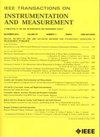RUL Prediction of Adaptive Kernel Particle Filtering Based on Time-Varying Fading Factor Considering Dynamic External Environment
IF 5.9
2区 工程技术
Q1 ENGINEERING, ELECTRICAL & ELECTRONIC
IEEE Transactions on Instrumentation and Measurement
Pub Date : 2025-08-29
DOI:10.1109/TIM.2025.3604111
引用次数: 0
Abstract
Dynamic environmental factors often introduce uncertainty into the degradation process of equipment, complicating remaining useful life (RUL) prediction. To address this challenge, the Wiener degradation process considering the impact of external dynamic environments is modeled, and a dynamic system filtering method based on a Bayesian framework is proposed for online RUL prediction. First, the Wiener process is constructed, accounting for the effects of dynamic environmental factors on the degradation rate and the correlation between the degradation rate and volatility. Then, to solve the uncertainty problem in the filtering process, a time-varying fading factor is introduced in the dynamic filtering process to adjust particle states in real time and improve the ability to track state changes. The nonparametric adaptive kernel density estimation (AKDE) is employed to approximate the true posterior probability distribution, and the discrete particle samples are converted into continuous probability density functions (PDFs), which increases the diversity of particles and optimizes the resampling strategy. Finally, the feasibility and effectiveness of the proposed model and algorithm are validated through a simulation study and the application of a lithium-ion battery.考虑动态外部环境的时变衰落因子自适应核粒子滤波RUL预测
动态环境因素往往给设备的退化过程带来不确定性,使剩余使用寿命预测复杂化。为了解决这一问题,对考虑外部动态环境影响的维纳退化过程进行了建模,并提出了一种基于贝叶斯框架的动态系统过滤方法用于在线RUL预测。首先,构建Wiener过程,考虑动态环境因素对降解速率的影响以及降解速率与挥发性的相关性。然后,为了解决滤波过程中的不确定性问题,在动态滤波过程中引入时变衰落因子,实时调整粒子状态,提高跟踪状态变化的能力。采用非参数自适应核密度估计(AKDE)逼近真实后验概率分布,将离散粒子样本转化为连续概率密度函数,增加了粒子的多样性,优化了重采样策略。最后,通过仿真研究和锂离子电池的实际应用,验证了所提模型和算法的可行性和有效性。
本文章由计算机程序翻译,如有差异,请以英文原文为准。
求助全文
约1分钟内获得全文
求助全文
来源期刊

IEEE Transactions on Instrumentation and Measurement
工程技术-工程:电子与电气
CiteScore
9.00
自引率
23.20%
发文量
1294
审稿时长
3.9 months
期刊介绍:
Papers are sought that address innovative solutions to the development and use of electrical and electronic instruments and equipment to measure, monitor and/or record physical phenomena for the purpose of advancing measurement science, methods, functionality and applications. The scope of these papers may encompass: (1) theory, methodology, and practice of measurement; (2) design, development and evaluation of instrumentation and measurement systems and components used in generating, acquiring, conditioning and processing signals; (3) analysis, representation, display, and preservation of the information obtained from a set of measurements; and (4) scientific and technical support to establishment and maintenance of technical standards in the field of Instrumentation and Measurement.
 求助内容:
求助内容: 应助结果提醒方式:
应助结果提醒方式:


